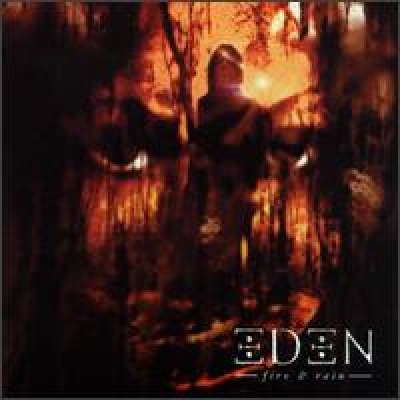
Fire & Rain
by Ned RaggettNot, happily, anything to do with the James Taylor "classic" of soft rock mush -- the track the album is titled after instead combines dramatic keyboards swell and low drones with a rich vocal that practically invokes a ritual of some kind. With Bourke departed to other projects, Bowley assembled a fully new lineup, with Ellerton, McArthur, and Barrett assuming the various instrumental roles. Together the band embraced a less eclectic but no less intriguing sonic palette, extending the goth/psych tendencies of Bowley's particular muse to their logical conclusions. Bowley's singing remains a definite high point of the group, passionate and evocative, his electric guitar work as striking. The overall tendency of the band is to play up the specifically goth side of the group's identity this time out, but with well-played skill and atmospheric understatement rather than overwrought posing being the key, even when Bowley's voice hits its most carrying, as on "Why?" Barrett in particular does a fine job; his percussion skills don't stand in for Bourke but alternately don't pretend to -- he's a good rock drummer with an ear for slow tempos and the odd additional choice of instrument via Arabic and Indian drums. The band's sonic and inspirational links to Dead Can Dance find a surprising echo in a choice of cover -- "Stretched on Your Grave," the traditional Irish ballad revived by Sinéad O'Connor and covered by Dead Can Dance themselves on its live Toward the Within release. Eden's version becomes a fine Bowley singing showcase, low keyboard tones and a concluding flute section providing the contrast. Other mood-outs, like the organ-led zone "Hooveless Horses" and "Song Slowly Song," provide Bowley a chance to put his vocal abilities to strong play, while the combination of minor keys and the odd vocal sample or two amps up the emotional impact even more.
